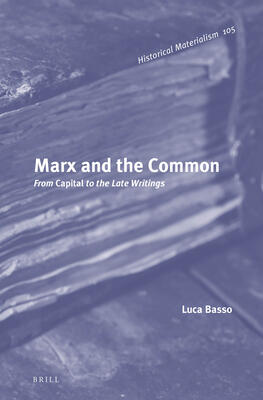
Marx and the Common: From Capital to the Late Writings
작성자:
Luca Basso
언어: 영어
형식: 하드커버
ISBN 10: 9004296883
ISBN 13: 9789004296886
출판 날짜:
October 8th, 2015
출판사: Brill Academic Pub
페이지: 224
Luca Basso delves into the intricate relationship between Marx's later writings and the concept of the common. By exploring Marx's evolving ideas, he captures a transformative perspective that transcends traditional interpretations of his work. Basso highlights how the themes of community and collaboration emerge prominently as Marx grapples with the socio-economic issues of his time, providing fresh insights into his vision for a collective future.
As Basso examines the nuances of Marx's philosophy, he situates the notion of the common as a vital element not only in economic discussions but also in shaping social movements. The author deftly ties together various strands of Marx's thought, revealing how the later writings reflect a deeper understanding of human interconnectedness in the face of capitalism's isolating tendencies. The narrative invites readers to reconsider the relevance of Marx's ideas in contemporary debates surrounding community and collective ownership.
Ultimately, Basso’s work serves as both a scholarly exploration and a passionate argument for the enduring significance of Marx's later theories. By recontextualizing Marx's contributions within today's socio-political landscape, he encourages a re-engagement with the potential for shared resources and cooperative living, challenging readers to envision a world rooted in communal values.
As Basso examines the nuances of Marx's philosophy, he situates the notion of the common as a vital element not only in economic discussions but also in shaping social movements. The author deftly ties together various strands of Marx's thought, revealing how the later writings reflect a deeper understanding of human interconnectedness in the face of capitalism's isolating tendencies. The narrative invites readers to reconsider the relevance of Marx's ideas in contemporary debates surrounding community and collective ownership.
Ultimately, Basso’s work serves as both a scholarly exploration and a passionate argument for the enduring significance of Marx's later theories. By recontextualizing Marx's contributions within today's socio-political landscape, he encourages a re-engagement with the potential for shared resources and cooperative living, challenging readers to envision a world rooted in communal values.